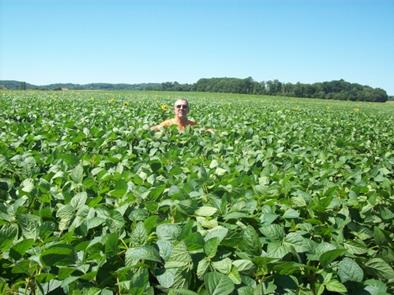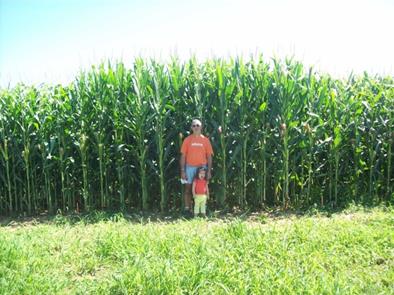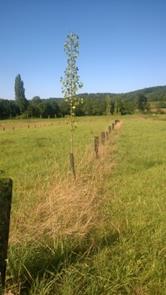by Fabien Balaguer
After 18 years of ploughing, Christian Abadie and his brother (farmers in South-Western France) witnessed a 50% decline in the organic matter content of their soils and increasing problems of erosion. In 2000, they decided that ploughing had to stop and that their agricultural system could be modelled as closely as possible to the forest, with constant inputs of organic matter to enhance bacterial life in the soil. Thus they started looking at no-till systems.
The initial years of no-till were complicated since they had to find the right techniques and varieties, whilst unlearning years of traditional practice. They set about maximising the return of carbon to the soil using permanent cover crop systems. By returning some of the organic matter to the soil each year, and protecting the soil structure, they now produce more with greatly reduced off-farm inputs. Their techniques, refined over the last 15 years, have transformed the land. Their soil retains large amounts of CO2, which is essential for a sustainable agriculture in the face of climate change. Water retention is far higher, limiting the need for irrigation, a crucial point in a region renowned for its production of maize. The small amount of run-off that takes place is free of silt and erosion has stopped.

Last winter and spring they started planting trees on their grasslands. They think that this should further improve the overall productivity of the farm, whilst making it more sustainable and resilient, both ecologically and economically. These trees (a mixture of species including poplar, ash, mulberry, maple...) will later be pollarded to produce chipped branch-wood for livestock bedding. This way, they will be able to gradually reduce their need for straw from outside the farm, and gain self-reliance.
They think that they are now in a position to share their hard-won knowledge, and are active members of several farmer-associations whose members are searching for a more sustainable form of agriculture. Their land is evidence to the fact that no-till agroforestry systems are a practical response to the environmental, economic and production problems of modern farming.













